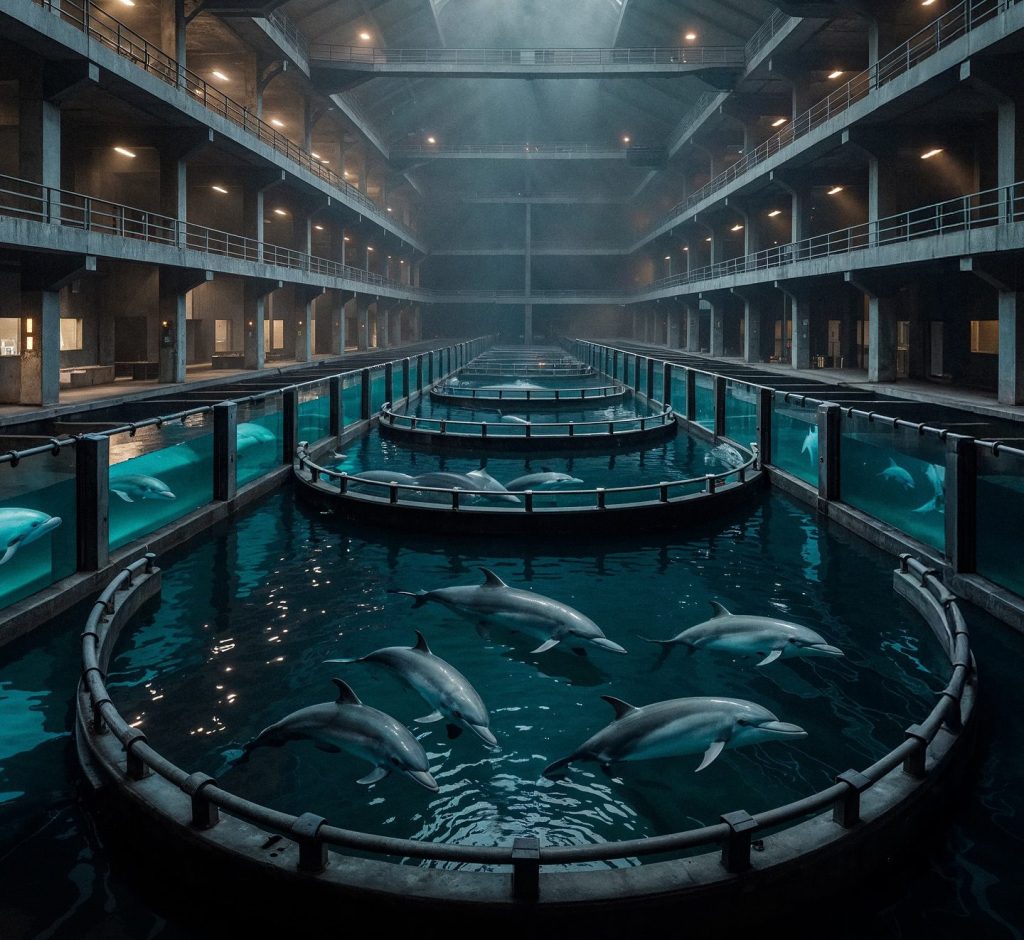Mexico Bans Dolphin Shows Nationwide, Giving 350 Dolphins a Chance to Live Free After Years of Captivity
There are moments when a nation takes a step that feels bigger than just a new law. It feels like a change in values, a shift toward something kinder, something that acknowledges that our entertainment should never come at the cost of another creature’s freedom. Mexico just had one of those moments. This week, the country officially approved a national ban on the use of dolphins for entertainment, marking the end of an era of dolphin shows that have been staples of tourist attractions for decades.
For years, dolphins in Mexico have been trained to leap, spin, and perform in front of crowds, often in facilities designed more for spectacle than for the well-being of the animals. At least 350 dolphins are currently held in 30 different facilities across the country, from coastal tourist hubs to inland aquariums. With the new law, those dolphins will now be retired from performing. Instead of being forced into choreographed routines for paying audiences, they will be relocated to sanctuaries or sea pens—spaces designed to mimic more natural conditions and give the animals a chance to live with dignity.

The transition won’t happen overnight. Parks and facilities have been given 90 days to submit detailed plans on how they intend to comply, and up to 18 months to complete the relocation process. That timeline is crucial. Moving dolphins is not as simple as unlocking a gate. Many of them were born in captivity, meaning the ocean is not a familiar or easy home. They will need specialized care, gradual adaptation, and in some cases, lifelong sanctuary environments that ensure safety without demanding tricks or performances.
For animal welfare advocates, this is a huge victory. Organizations and activists have been campaigning for years to end dolphin shows, highlighting the stress captivity causes for these intelligent, social animals. Dolphins in the wild travel vast distances every day, communicate through complex sounds, and live in tightly knit pods. Confining them to small tanks and asking them to perform under bright lights strips away much of what makes them who they are. The Mexican ban acknowledges this reality, and it sends a message to the world: compassion is worth more than applause.
The decision will also reshape tourism in Mexico. Dolphin shows have been a major draw for families and international visitors, especially in places like Cancún and Los Cabos. Without them, tourist circuits will change. Some facilities are already discussing alternatives, such as eco-tourism experiences, virtual reality shows, or guided wildlife encounters in the open ocean that don’t involve confinement. It’s a reminder that when one door closes, new possibilities open—possibilities that might even bring people closer to animals without causing them harm.

Of course, challenges remain. Relocating 350 dolphins is no small task. There will be debates over where they should go, how much funding is needed, and whether sanctuaries can keep up with the demand. But the most important step has already been taken: a national commitment to retire these animals from the entertainment industry. Once a country decides that captivity for profit is no longer acceptable, the details, however complicated, become solvable.
In a world where animal welfare is often overlooked, Mexico’s move feels groundbreaking. It’s not just about dolphins—it’s about rethinking the way humans see animals in general. Are they here to amuse us, or are they fellow beings deserving of respect, freedom, and care? By answering that question with action, Mexico has set an example that other nations may soon feel inspired to follow.

As the sun sets on the last dolphin shows in Mexico, those 350 dolphins represent something larger than themselves. They represent a turning point in how humanity views its relationship with the natural world. And maybe, just maybe, the applause they once earned in crowded arenas will now be replaced by something even more powerful: silence, freedom, and the sound of waves.


